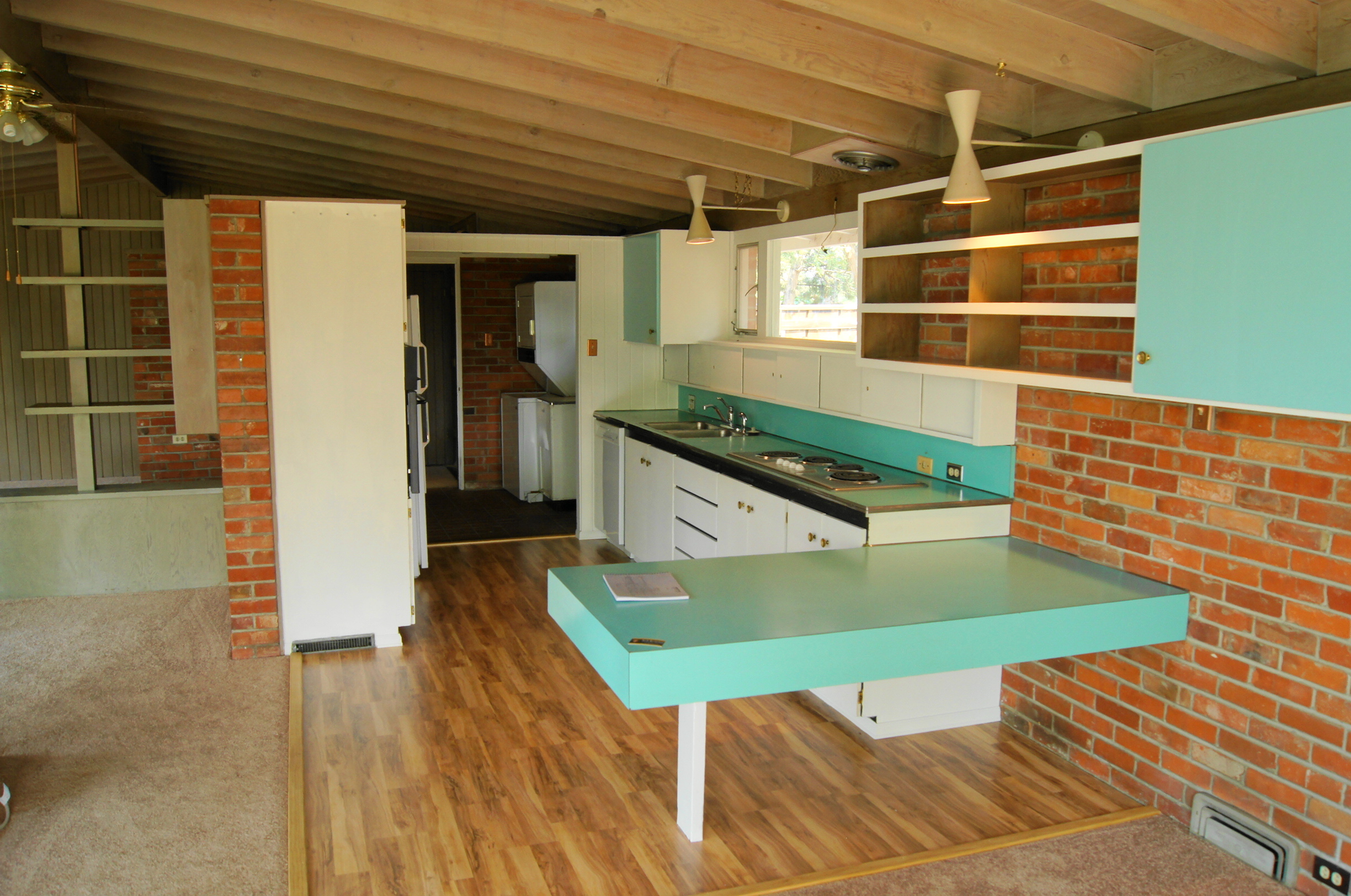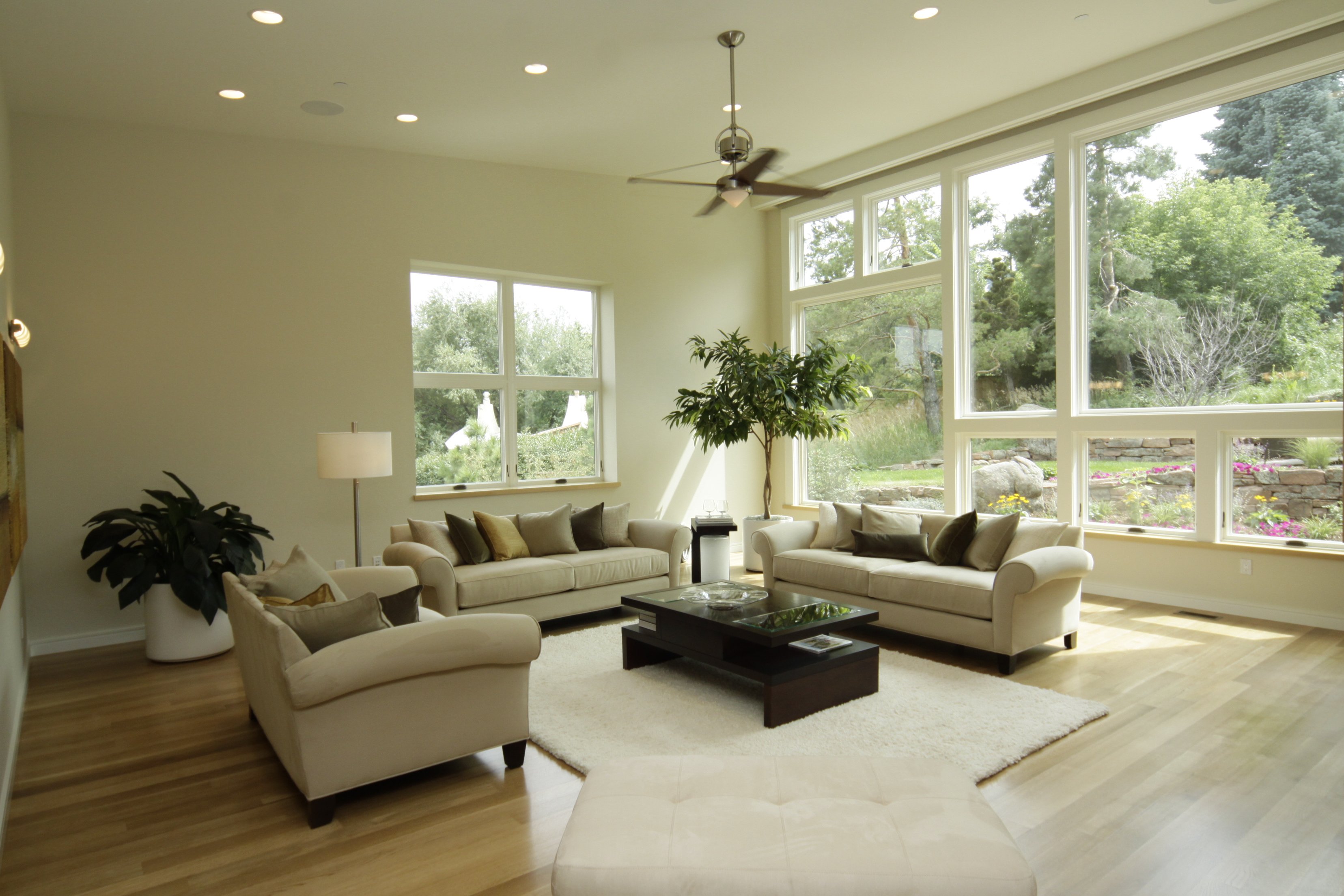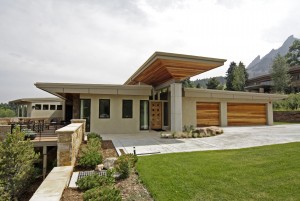
by Neil Kearney | Feb 24, 2015 | Boulder County Housing Trends, For Buyers, For Sellers, General Real Estate Advice, Real Estate 101
 In a recent article in Forbes Magazine by Mary Meehan titled “The Baby Boomer Housing Bust“, the author makes the case that in the coming years the Baby Boomers may have a hard time selling their homes to the Millenials. She states that many Baby Boomers (people born between 1946 and 1964) will need to sell their large suburban homes to finance their retirement and that the younger buyers may not be interested in buying those homes.
In a recent article in Forbes Magazine by Mary Meehan titled “The Baby Boomer Housing Bust“, the author makes the case that in the coming years the Baby Boomers may have a hard time selling their homes to the Millenials. She states that many Baby Boomers (people born between 1946 and 1964) will need to sell their large suburban homes to finance their retirement and that the younger buyers may not be interested in buying those homes.
It’s an interesting article, especially since in the Boulder area we are seeing a strong sellers market with strong demand for any property listed. But since real estate markets change and many people are talking about how the changing demographics in America will affect housing, I thought I would explore the connection between Baby Boomers, Millenials and real estate. Here are the topics I’d like to touch on:
- Baby Boomers need to sell homes to fund retirement.
- Younger buyers, including Millennials have different attitudes regarding home ownership.
- There will be an unmatched demand for the supply of homes on the market.
According to a National Association of Realtors (NAR) 2014 Generational Trends Survey, Millennials made the most real estate purchases in 2013. Here is the breakdown:
Millennials (1980 – 1995) 31% of purchases
Gen X (1965 – 1979) 30% of purchases
Young Boomers (1955 – 1964) 16% of purchases
Older Boomers (1946 – 1954) 14% of purchases
Silent Generation (1925 – 1945) 9% of purchases
For reference, here are the latest population percentages in the United States and Boulder County: Under 18 25.7% (22.9%); 18-24 9.6% (13.4%); 25-44 30.2% (33.6%); 45-64 22% (22.3%); 65+ 12.4% (7.8%).
My takeaways from this are: The Baby Boom generation is roughly 25% of the population. I always had the perception that the 65+ cohort was a bigger percentage. I know that it’s growing, but it’s in the future, not in the present. And did you notice the low percentage of retirees in Boulder County? Just 7.8% of our local population.
Some facts about the Baby Boomers:
- The youngest of the 78 million Boomers are turning 50 this year.
- 10,000 Boomers a day are turning 65 years old, this will happen every day through 2030.
- Younger Boomers have less savings and a lower homeowner rate than older Baby Boomers.
- Boomers own 32 million single family homes.
- They have had a great run in the real estate market. Owning a home has been a great investment.
- So far, this generation has been net even in the housing market. When they sell one, they buy one. This will change but will the Millenials be ready to buy?
Some Facts about Millennials:
- They are the second largest generation.
- Despite the housing crash in 2008, 2/3 believe that owning a home is essential to living a good life.
- This generation is delaying home buying due to high student debt and a tough job market.
- Despite having a delayed start in the housing market Millenials bought the most homes in 2013 (see above).
- The U.S. housing market saw it’s first sustained downturn during many of the Millenials first buying/owning experience. This has led to a more subdued mindset about housing.
Are The Baby Boomers Ready For Retirement?
In the 2013 Retirement Confidence Survey conducted by the Employee Benefit Research Institute (EBRI), workers aged 55 and older said the following about their retirement savings:
- 60% have less than $100,000 in retirement savings
- 43% have saved less than $25,000
- 36% have saved less than $10,000
As a point of reference, of all workers surveyed:
- 76% have less than $100,000 saved
- 57% have less than $25,000 saved
- 46% have less than $10,000 saved
Despite the apparent lack of adequate savings, 70% of all workers surveyed also said they believe they are “doing a good job of preparing for retirement”—even though only 46% of all workers surveyed have a retirement plan!
According to the information above it’s clear that many Baby Boomers are not ready for retirement. Selling their family home and moving to a lower priced home and supplementing their retirement with the difference seems to be a key component to many “plans”.
Are Millenials Interested In Boomers Homes?
During the last fifteen years Baby Boomers have been purchasing upgraded homes and second homes. Generation X who are on the heels of the Boomers, are a smaller generation and after the economic downturn are in recovery mode. Gen X won’t be able to buy all of the homes that Boomers are getting ready to sell. Millenial generation home buyers have been less interested in size and more interested in location. So far, being near the action is more important that having a status symbol. This generation is large but is just getting geared up in the home buying cycle. So far, demand has met the supply of homes but as more and more Boomers sell their large homes the younger generations may not be interested in them. Especially if it’s large and suburban.
Will Supply and Demand Meet?
The latest US Census data suggests that the population in the United States will grow 27% between 2015 and 2060. As a friend of mine says “clearly there will be a set of cheeks for every seat”. In fact for the foreseeable future, home builders will need to stay busy to keep up with demand. So the question in my mind is not a question of scope but of type. There will clearly be enough home buyers to meet the seller demand but will the price range, type and location meet the buyers desires. Those Boomers with McMansions away from urban areas may find decreasing demand for that type of housing in the future.
The Local Spin
According to a recent National Association of Realtors report both Millenials and Baby Boomers see the Denver area as one of the top areas in the country to relocate to. I have found that I’m working with many more experienced home owners who are looking to the Boulder area as a place to retire. College towns are especially popular throughout the country although Boulder is rare in that the home prices prohibit less affluent people from retiring here. Millenials follow lifestyle and jobs and the Front Range of Colorado including Boulder County has plenty of both. So in my mind, as long as the lifestyle and economy stay favorable, we will still have people wanting to live in the Boulder area.
My Conclusions
As more and more Baby Boomers retire, the real estate market will take on a different character. Many Boomers will downsize and while there will be a demand for their homes, price appreciation may stagnate over time. Millenials may not have the exact same taste in homes than do the Boomers, but as the U.S. population grows towards 400 million people in the next 40 years, the demand for housing will expand. And as Will Rogers said “Buy land. They ain’t making any more of the stuff.”
Additional Articles
NAR Field Guide to Millenial Home Buyers
Why Millennials Don’t Trust Ads, Real Estate or Social Security

by Neil Kearney | Dec 18, 2014 | For Buyers, General Real Estate Advice, Real Estate 101
 Here are some of the reasons why people buy their first home.
Here are some of the reasons why people buy their first home.
- Tired of paying rent / rents are rising.
- Home prices are rising and if they don’t buy now they might be priced out of the market.
- Just got married.
- Just got a great new job.
- All my friends are buying a place and it seems like a good idea.
All of these reasons are reasonable, but none of them hit on the key factors that a first time home buyer should consider when they are thinking about buying a home. They can push you in the right direction but they don’t ensure an intelligent purchase.
Buying a home is one of the best ideas you can make. It is a great long term investment, your payments are tax advantaged, with each payment you are gaining equity and you get to live in a place you can make your own. It’s a win, win, win! However, the keys to making it a good investment have much to do with your stability and your budget.
I mentioned in the previous paragraph that owning real estate was a great long term investment. Unless the market is appreciating very quickly you will be doing very well to break even if you need to sell within two years. Real estate is cyclical so not everyone gets lucky and makes the purchase right before prices take off. In many markets prices are just now getting back up to 2007 levels after a big decline. If you bought in 2006 and needed to sell in 2010 you lost money. So the first question to ask yourself when you are considering a home is: “How long will I be living in this house?” If you answer is less than five years it might be better to rent. A key to making real estate an investment, not just a place to live is the ability to wait out market cycles.
Besides geographic stability the other main thing to consider is affordability. The first step to figure out what is affordable is to take an in depth look at your finances. Examine your long term financial goals such as savings, retirement, kids college, vacations, etc., and figure out how to make it all fit within your budget. When you know your comfort level regarding monthly payment call a mortgage lender to get pre-approved. Most likely you will be approved for more than what you are comfortable paying. If you over-extend yourself with your new house you will feel burdened instead of smart. Pick a payment that is comfortable for you and that allows you to keep your savings and lifestyle goals in tact.
Some practical considerations regarding affordability:
- Plan ahead for future changes in income. Do you plan to become a one income family after you start a family? Don’t lock yourself into a payment that requires two incomes.
- Have you saved enough of a down payment? Low down payment options are available but they require an additional payment called mortgage insurance. If you have less than 20% down it might be a good long term decision to delay the purchase and save every penny you can until you have what you need.
- As interest rates rise your payment dollar buys you less house. If you are almost ready to buy and your qualification is right on the edge it might be good to lock in a home before interest rates rise. To read more about how much this can affect your payment see my article The Impact of Interest Rates on Home Affordability.
- Credit scores have a huge impact on your ability to buy a house. If you have a credit score of less than 760 your qualification or the interest rate you are offered will be negatively affected. To check your credit score for free (with no strings attached) go to www.AnnualCreditReport.com. If you find out that your credit score will negatively impact you, figure out why your have a low score and start fixing your FICO score.

by Neil Kearney | Dec 8, 2014 | General Real Estate Advice, Real Estate 101
In Colorado, when there is more than one buyer or entity purchasing real property, the buyer(s) can specify how they will hold title. On the Colorado approved “Contract to Buy and Sell Real Estate” in section 2.1 buyers have the option to take “title to the Property described below as Joint Tenants, Tenants in Common or Other. Below I will spell out the main differences between joint tenants and tenants in common.
Joint Tenants
Joint tenancy is characterized by right of survivorship. When a property is owned by joint tenants, and one of the owners dies, the interest of the deceased owner automatically gets transferred to the remaining surviving owners. For example, if five joint tenants own a house together and one of them dies, each of the four remaining joint tenants ends up with 1/4 share of the property. Regardless of what the deceased owners will says. In 2008 the laws were changed to allow for unequal interests in the property by the owners. For example, instead of an elderly parent owning a 1/2 share along with their child to whom they would like to leave the house, the ownership could be split 99% / 1%. When the parent dies the child would then own 100% interest in the property.
Joint tenancy is most often used by married couples or multi-generational families who own real estate together.
Tenants in Common
There are three main differentiating characteristics of tenants in common ownership. The first is, like joint tenancy the ownership interest can be split up into different percentages. For example Owner A can own 60%, Owner B 15% and Owner C 15%. The second feature is that the mix of owners and the percentage of ownership can be changed at any time. Owners can be added or subtracted at any time by mutual execution of legal documents. Tenants in common doesn’t have rights of survivorship. If in our example Owner A dies, his 60% interest would go to his estate unless his will specifies that his interest shall be split between the remaining parties.
Tenants in common is most often used by unrelated parties such as friends, un-married couples, business partners or family members where one person is putting down more assets than the other.
This article isn’t intended to give legal advice. Please seek professional guidance when making legal decisions.

by Neil Kearney | Aug 19, 2014 | For Sellers, General Real Estate Advice
 As a Realtor, I see many houses each week. Each house is different but all houses have one thing in common. At one point they were brand new and shiny. The pride of the new home owners. But time moves on and what was once new isn’t the latest and greatest any more. Home ownership is a process, it isn’t a one time deal. In order to get the most out of your investment you need to keep up on it and improve it and this is most easily done incrementally.
As a Realtor, I see many houses each week. Each house is different but all houses have one thing in common. At one point they were brand new and shiny. The pride of the new home owners. But time moves on and what was once new isn’t the latest and greatest any more. Home ownership is a process, it isn’t a one time deal. In order to get the most out of your investment you need to keep up on it and improve it and this is most easily done incrementally.
I go out to look at houses and find that many original owners liked their choices of carpet, counter tops and wallpaper so much that they haven’t changed them for 20 or 30 years. Many times these houses are well maintained but they are not updated. To the owner it’s fine. To a prospective buyer it’s a fixer upper!
This brings me to Kristy’s rule for home ownership (Kristy is my wife). In order to keep on top of a house you must do one project a year. This could be new counter tops or new carpet or new paint or new flooring in the bathroom or new doorknobs on the interior doors or … The list is endless and it depends upon the house about what needs to be done.
Action Step: Write out a list of needed projects without the baggage of how hard or expensive it will be. Prioritize the list in terms of needs. Then re-priortize the list in terms of cost and logistics. The main objective is to know what you need to do and then get started on it. If your first project will take 7 years to pay for, most likely nothing will get done. So my advice is to knock off a few ‘easy’ projects first.

by Neil Kearney | Apr 28, 2014 | For Buyers, General Real Estate Advice
 The Boulder real estate market is currently characterized by low inventory and good buyer demand. It’s a sellers market. Many home buyers are finding that the houses that they are interested in buying are also coveted by other buyers. This leads to a multiple offer situation. A great situation to be in – if you are a seller. For a buyer it really stinks. To see the situation from both sides read this article.
The Boulder real estate market is currently characterized by low inventory and good buyer demand. It’s a sellers market. Many home buyers are finding that the houses that they are interested in buying are also coveted by other buyers. This leads to a multiple offer situation. A great situation to be in – if you are a seller. For a buyer it really stinks. To see the situation from both sides read this article.
In our area multiple offers are most often handled in this way. The listing agent receives an offer and then lets all other agents who are showing or have showed the house know that they will be presenting the offer at a certain time and day. If another offer does come in the first offering party is advised of the second offer and is offered the opportunity to revise their offer. For the buyer the information available is usually only limited to the number of offers that will be looked at. This information gap leads to much anxiety. How much should we offer? What are the other offers? Are we crazy to offer $X? Will there be another better house coming down the line that is less hassle and not priced so high? Will it appraise if we go over full price? It goes on and on and each of these questions are rhetorical.
Since I can’t answer these questions for my clients with any clarity. I rely on experience to advise them the best I can and ultimately I leave it up to them to pick a number. Sometimes we use an escalation clause to calm the anxiety a bit and to hedge an overpriced offer. In the end it’s an inexact science and the results favor the bold.
So far this year there have been approximately 362 sales in the City of Boulder. In 23% of these transactions the buyer paid more than the listing price for the property. Presumably most of these 84 transactions had multiple offers. So in an effort to bring some data to the unanswerable here are the statistics from those multiple offer situations.
- The average successful offer over all price ranges exceeded the listing price by 3.07%.
- The highest percentage paid over the list price was 12.63%.
- The average price paid over list in transactions under $300,000 was 3.13%
- The average price paid over list in transactions between $300,000 and $600,000 was 2.72%.
- The average price paid over list in transactions between $600,000 and $800,000 was 2.65%
- The average price paid over list in transactions over $800,000 was 4.63% (3.8% if you exclude
- In 14 of the 84 transactions the buyer paid $2,000 or less over list price.
- The average premium paid across all price ranges was $15,500.

by Neil Kearney | Mar 19, 2014 | For Sellers, General Real Estate Advice
 In order for a house to sell in today’s market it must have a lot going for it. The competition is intense and a successful seller is one who competes and wins on many different fronts. This article will provide the prospective seller tips, ideas and best practices that will help you sell your home, not just list it.
In order for a house to sell in today’s market it must have a lot going for it. The competition is intense and a successful seller is one who competes and wins on many different fronts. This article will provide the prospective seller tips, ideas and best practices that will help you sell your home, not just list it.
Curb Appeal
No matter how beautiful your home is on the inside, the first impression will always be made by how the house looks from the street. Many times if the house does not look up-to-snuff on the outside buyers will chose to not go inside. You don’t get a second chance to make a first impression. Here are some tips to make the exterior of your house look its best:
• Cut the grass,
• Trim the hedges.
• Rake the leaves.
• Sweep or shovel the sidewalks.
• If you have rocks around your house make sure it’s not 1 part rock and 2 parts old leaves and sticks.
• Trim and remove any dead flowers, or shrubs. Dead and dormant are not good buyer thoughts as they wait for their Realtor to open the door.
 Cut the Clutter
Cut the Clutter
People tend to accumulate things. The mail arrives and we make a pile. Grandma gives you a chair and we squeeze it in. After a few years, what is imperceptible to the owners is a maze of furniture, junk and accessories. You have to cut the clutter! Buyers will love to see Sally’s photo montage from kindergarten to marriage but they will remember Sally’s dress and her husbands blue tux and won’t remember that this is the house with the beautiful wood floors. Remove 7/8ths of the personal photos. I realize it is still your house but buyers have a hard time picturing themselves in “your” house. The rooms will look bare and not “homey” to the seller but believe me, this is how buyers like to see a house. They want to be able to picture their stuff in the house.
Staging
Once you cut the clutter it is time to think about staging each room. The idea is to make each space pleasing to the eye. Work from the perspective of a buyer at the entrance to each room. There should be a balance to the room in terms of weight of the furniture (you don’t want everything piled in one corner) and hardness. By hardness I mean that there should be a balance of hard and soft surfaces. If a room has hardwood flooring there should be a rug to soften it up a bit. If there is a couch, a love seat and a lazy-boy the room is probably too soft and you will need to add a coffee table or replace the lazy-boy with a harder chair (think Windsor). I am not a staging expert but I know people who are and even if you have plenty of your own furniture it is worth a couple of hundred dollars to have an expert come over to put it in the right place. Beware, sometimes the right place for some of your stuff is at the curb. In order to get it right you sometimes have to hear what you don’t want to.
 Clean Like You Have Never Cleaned
Clean Like You Have Never Cleaned
Buyer’s look at your house differently than you do; they are comparing it to all of the others out there. Not only are they looking for the facts of a house (number of bedrooms, square footage, etc.) they are waiting for an emotional connection with a house. It is hard to get emotionally attached to a house that has flies in the window tracks, a dusty top of the refrigerator (just because you can’t see it doesn’t mean a buyer can’t see it) or a ring around the toilet. It takes near constant vigilance to keep a house in pristine showing condition. The idea is to have the buyer ask if someone actually lives there. Before you put your house on the market it’s time to wash all of the baseboards, clean the silver in the hutch and wash the windows. It’s also time to clean the window wells, dust the light fixtures and shine the sink. You’re going to love your house so much you are going to hate to leave. But then again, it’s hard work selling your house and you will be relieved when that offer gets accepted.
This is not an exhaustive list but it will get you thinking along the right lines. Time and time again I hear from my clients who get the highest and quickest offers that this happens to them each time they sell. Why does this happen? Are these people lucky? No, these people have the knowledge, planning and persistence to put their house in great showing condition. Call me whenever you need an extra pair of eyes to check over the progress.
Below is a link to an article on Houzz.com about getting your home ready to sell that touches on many of the same subjects. Enjoy.
Page 3 of 9«12345...»Last »

 In a recent article in Forbes Magazine by Mary Meehan titled “The Baby Boomer Housing Bust“, the author makes the case that in the coming years the Baby Boomers may have a hard time selling their homes to the Millenials. She states that many Baby Boomers (people born between 1946 and 1964) will need to sell their large suburban homes to finance their retirement and that the younger buyers may not be interested in buying those homes.
In a recent article in Forbes Magazine by Mary Meehan titled “The Baby Boomer Housing Bust“, the author makes the case that in the coming years the Baby Boomers may have a hard time selling their homes to the Millenials. She states that many Baby Boomers (people born between 1946 and 1964) will need to sell their large suburban homes to finance their retirement and that the younger buyers may not be interested in buying those homes.











